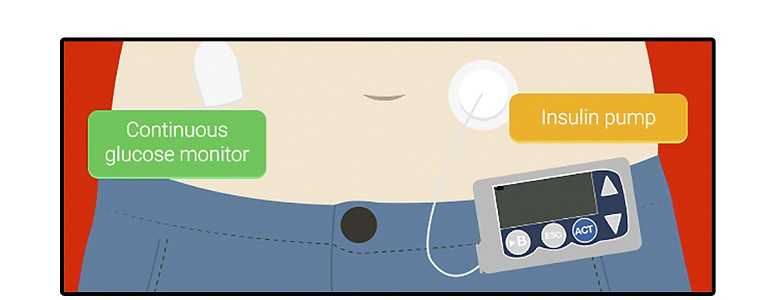A new artificial pancreas system, called Control-IQ, has helped people with type 1 diabetes to spend more time in their target glucose range, according to a newly published study.
An artificial pancreas is a device designed to release insulin in response to blood glucose levels in a similar way to a human pancreas.
This new system called the Control-IQ system works by adjusting insulin delivery automatically using algorithms.
Researchers recruited 168 people living with type 1 diabetes, all aged 14 and above. They split them into groups, with more than 100 given the Control-IQ system to use whereas 56 were given sensor-augmented pump (SAP) therapy. The use of a sensor-augmented pump does not involve the pump system automatically changing insulin dose rates.
The researchers used time in target range as the main assessment for which group achieved the best level of control. The target range to achieve was 3.9 to 10.0 mmol/L (70 to 180 mg/dl).
The results showed that participants using the Control-IQ system achieved a longer time in the target glucose level range by 2.6 hours on average per day compared to their time in target prior to using the system. The average percentage of time in range went from 61% of time spent in range prior to the intervention, up to 71% of time in range after using the artificial pancreas system.
The group using SAP therapy experienced no significant increase in time within the target range through the study period. The percentage of time in range for this group remained at 59% through the study.
Participants using the Control-IQ system reported better blood glucose control during the day and notably during the night. One artificial pancreas system participant reported an episode of diabetic ketoacidosis, which was down to an issue with the equipment.
Researcher Dr Guillermo Arreaza-Rubín, Director of the Diabetes Technology Program at the National Institute of Diabetes and Digestive and Kidney Diseases (NIDDK), said the system “has the potential to improve the health of people living with type 1 diabetes, while also potentially lifting much of the burden of care from those with the disease and their caregivers.”
Dr Griffin Rodgers, NIDDK director, said: “By making management of type 1 diabetes easier and more precise, this technology could reduce the daily burden of this disease, while also potentially reducing diabetes complications including eye, nerve, and kidney diseases.”
The findings of the study have been sent to the U.S. Food and Drug Administration (FDA), which will decide whether the product has enough evidence to be available to people with diabetes.
This 6-month study is also part for a bigger pool of international research into artificial pancreas systems called Diabetes Closed-Loop (iDCL) Study.
The study was published in the New England Journal of Medicine.







